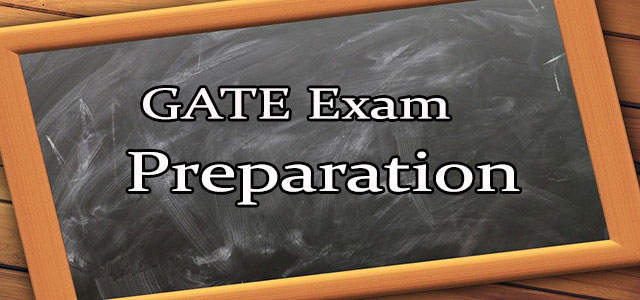-
How to crack GATE Exam
Updated : 16-Jun-2017
GATE, itself means opening lucrative opportunities in several public sector enterprises and research organizations. However, based on the score achieved in GATE, admissions are being offered in IITs, IISc, and NITs, and abundant opportunities for campus placements with highest salary packages.
The eligibility to appear for GATE exam -
- Bachelor's degree holder candidates in Engineering/ Technology/ Architecture (4 years after 10+2) and also those who are pursuing the final year of such program.
- Graduates in Engineering/ Technology/ Architecture (Post-B.Sc./Post-Diploma) and candidates who are in the final year of such programs are also eligible.
- Master's degree holders in any branch such as Science/ Mathematics/ Statistics/ Computer Applications or equivalent and candidates pursuing the final year of these programs.
- Candidates in the second or higher year of the Four-year Integrated Master's degree Programme (Post- Bachelor of Science degree) in Engineering/Technology.
- Candidates in the fourth or higher year of Five-year Integrated Master's degree Programme or Dual Degree Programme in Engineering/Technology are also eligible.
- Candidates with qualification obtained through examinations conducted by professional societies recognized by UPSC/AICTE (e.g. AMIE by Institute of Engineers (India); AMICE by Institute of Civil Engineers (India) equivalent to B.E. /B. Tech and those who have completed section A or equivalent of such professional courses can also apply.
Have a look on exam pattern of GATE :-
GATE Exam Pattern
General Aptitude - Number of questions - 5 , Total marks - 5
Technical - Number of questions - 25 , Total marks - 25
Engineering Mathematics - 30 , Total marks - 60
Total questions - 65
Total Marks - 100
Duration - 3 hours
One-third marks will be deducted for questions of 1 mark each and 2/3rd marks will be deducted for questions of 2 marks.
Have a brief details on ‘Subject Specialization Priority’ -
1. Electronics & Telecommunication Engineering
- VLSI Design Tool Technology
- Integrated Electronics & Circuits
- Micro Electronics
- Microwave Engineering
- Communication Engineering
- Telecommunication Technology & Management
- Optoelectronics & Optical Communication
- Nanotechnology
- Digital Signal Processing
- Control & Automation
2. Electrical Engineering
- Power Electronics
- Machines & Drives
- Power Systems
- Control & Automation
- Digital Signal Processing
- Instrumentation Technology
3. Mechanical Engineering
- Design of Mechanical Equipment or Machine Design
- Thermal Engineering
- Manufacturing Science & Engineering
- Production Engineering
- Industrial Engineering
- Material Science & management
4. Civil Engineering
- Structural Engineering
- Geotechnical Engineering
- Construction Engineering & Management
- Transportation Engineering
- Environmental Engineering
- Earthquake Engineering
- Water Resources Engineering
- Rock Engineering & Underground Structure
5. Computer Science and Engineering & Information Technology
- Computer Science
- Information Technology
- Information Security
- Software Engineering
- Distributed Computing
- Image Processing
- Computer Systems and Hardware
- Information Systems and Database
- Programming languages
- Distributed Systems and Computer Networks
- Artificial Intelligence
- Advanced Computing
Tips to prepare for GATEs -
- One of the most popular GATE examination consists only of multiple and numerical answer type questions, hence only correct answer fetches marks.
- Try to practice previous year question papers and also analyze the weak topics and concentrate more on those topics. Candidates should try their best to solve the papers in a given time limit to obtain an idea as to how many questions are solved within the allotted time.
- Don’t forget to impart equal emphasis on both theory and numerical problems.
- One should always browse through the GATE syllabus for topics allotted more weightage and prepare them.
- Do you know, group Study is an effective way to brush up knowledge about technical topics with fellow partners and also helps to explore new techniques and methods to better understand the topics. So try to study in a group.
- Don’t be overconfident, as there is negative marking associated with the questions.
- Firstly, prepare the list of important definitions, equations, derivations, theorems, laws in every subject.
- Last but not the least pay more attention while attempting linked and common data questions.














